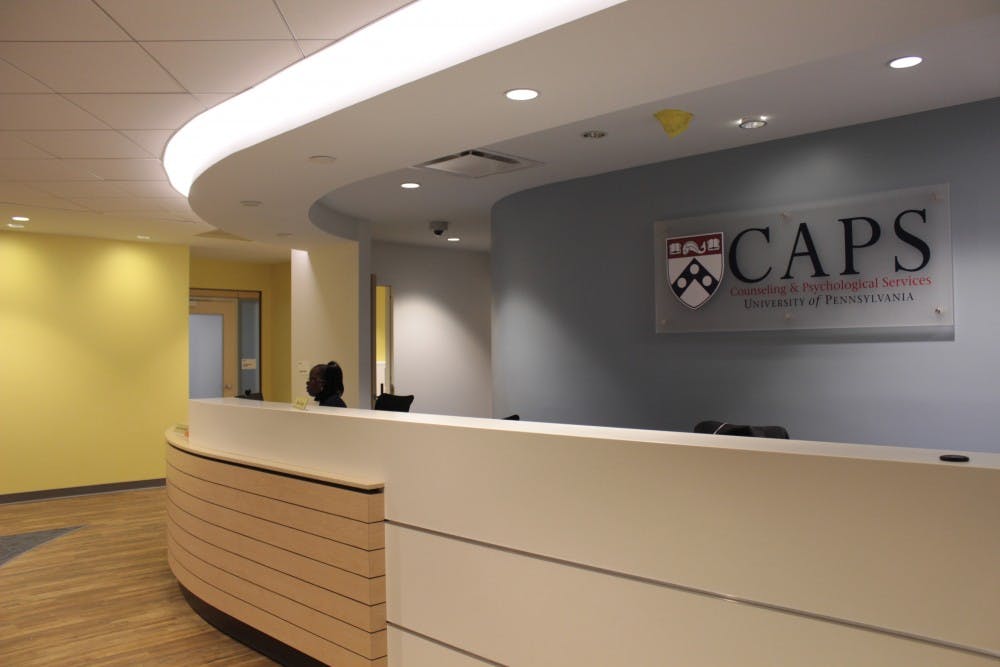
Students who take leaves of absence for mental health reasons do not just suffer the financial burden of hospitalizations, outpatient care and therapist visits. Many also encounter unexpected Penn-related financial difficulties.
College senior Devanshi Mehta was forced by the University to take a leave of absence one month into her freshman year. She called the process “forceful,” and said the University didn’t want to have liability for her deteriorating mental health.
Director of Counseling and Psychological Services Bill Alexander said only two or three students have taken involuntary leaves in the past fifteen years, and that the process for forcing a student to leave is complex and requires permission from the Provost.
“[The leave] was a huge financial burden,” Mehta said. “I had inpatient, outpatient and post-outpatient care. I still have medical bills to this day, and it was four years ago. When you have inpatient care, insurance can only cover so much and when you have outpatient visits, you only have so many out-of-network benefits. And then I had to find a good therapist that could follow up with my care. It was taxing, super taxing.”
But what Mehta did not expect were the difficulties relating to her Penn finances.
“When I returned as a freshman, tuition had increased, and I guess it increases a certain percentage every year, but that was also really frustrating,” she said. “I had a lot of regrets. If I didn’t screw up my health and if I stayed, then that would be almost $2,000 savings.”
Aside from her difficulties at Penn, Mehta also experienced difficulties communicating with her external scholarship provider in the aftermath of her leave.
“I had to go back to the IBM Watson Foundation and explain the reason why I had to take a leave and why they had to take the scholarship back from Penn,” she said. “I had to get proof, doctors notes and therapy notes, and that was an annoyance. And then to get [the money] reapplied to my freshman year. And recently, they were confused about why I’m going to be a senior again.”
Like Mehta, Daily Pennsylvanian columnist and rising College senior Katiera Sordjan was subject to an involuntary leave of absence during her sophomore year, instigated by the University in the same way that Mehta’s was.
In addition to her year off, Sordjan also had mental health struggles at the end of her freshman year and was not able to complete two classes. As a result, she had to complete classes in the summer, which was a financial burden on her family.
“With the summer classes, for example, there isn’t really as much aid available from Penn, it’s more loans, and the extra summer that I took was at an additional cost to my family,” she said. “I feel like it would be helpful if students did have to take the leave and had to spend extra time, if there were some way to help them out. Because it is a financial issue if you’re taking extra semesters or pushing up your credit load or pushing back your graduation date.”
While one student who wished to remain anonymous emphasized that the financial side of her crisis was not at the forefront of her mind at the time, she returned to Penn only to encounter financial frustration.
“My FASFA for the next year [after returning] got audited because I had only gone for one semester of school so they were looking at my parents’ finances and it looked like we had cheated the system,” she said. “But it was actually because I took a leave and we got refunded for that. In the Spring we had to patch our financial aid a lot to get my package. We were calling them twice a week and sending them emails and they finally got a package together.”
Despite other difficulties, Mehta and the anonymous student both spoke positively of Penn’s tuition refund policy, which refunds 100 percent of tuition in medical cases if withdrawal occurs within the first two weeks of classes, and 50 percent within the third and fourth weeks. No refund is available after four weeks.
Both students said they received full refunds.
While Mehta and Sordjan were initially resistant to leaving the University, they were ultimately positive about the outcome of their leaves.
“I had a rough experience because I was in such denial and I was resistant to any termination of enrollment, but I know that it was in [CAPS’s] best interests,” Mehta said. “Financially, I regret my leave, but holistically, I don’t.”
The anonymous student agreed. She added that she knows a fellow student who took a leave for mental health reasons, but had to stay on campus for the duration of the leave, as it was too expensive for that student to travel home.
“Taking a leave of absence is really good for your mental health and it can be a really good situation, but it also can be stressful in terms of finances,” she said. “There is privilege in the ability to take a leave of absence … that you have a place to go, somewhere that is safe with treatment and will provide you with an environment that is conducive to getting better.”
The Daily Pennsylvanian is an independent, student-run newspaper. Please consider making a donation to support the coverage that shapes the University. Your generosity ensures a future of strong journalism at Penn.
DonatePlease note All comments are eligible for publication in The Daily Pennsylvanian.








